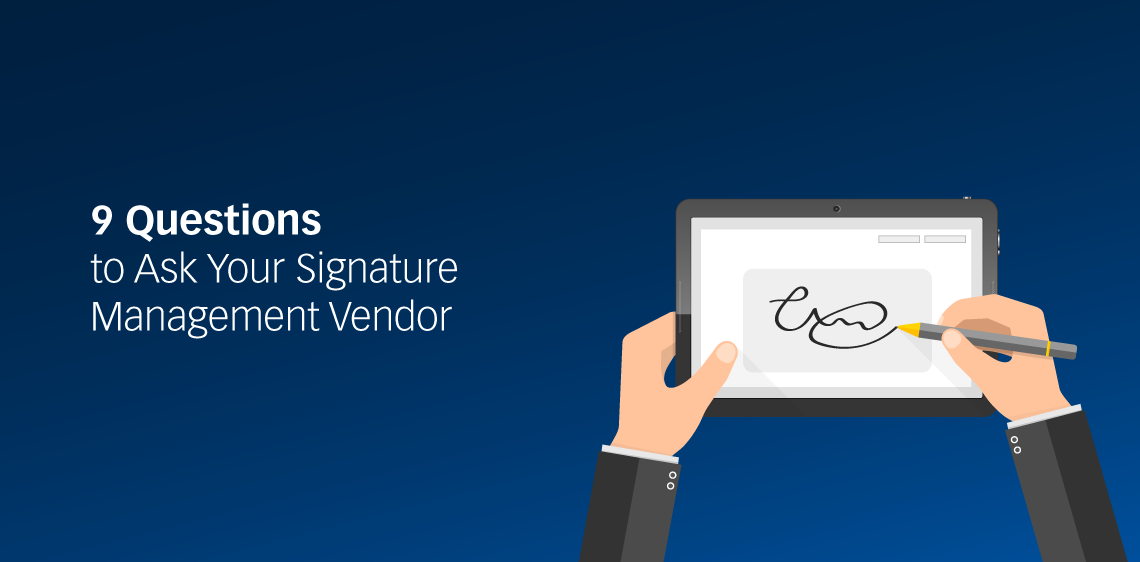

If you ever looked up the definition of ‘signature’ on Webster, you will find that it is defined as a “person’s name written in that person’s handwriting.” But why handwriting? What makes handwritten signatures special?
Simply put, a signature represents one of the key aspects defining a person’s biometrical identity. Biometrical identities play an essential role in defining who you are and what you represent, and because of that, financial institutions consider signatures as one of the most important lines of defense against financial fraud and crimes.
Accordingly, it comes as no surprise that financial institutions invest in transforming their internal management of signatures into complete solutions that cater to their business needs. Such solutions usually cover the basics of managing accounts, signatories and signatures. However, some of the most essential parts of signature management solutions is their ability to automate processes such as the validation of account mandates and rules in order to decide whether certain signatories are authorized to complete a certain transaction, or the ability to pull up specific account versions according to a transaction date. But what really makes a signature management solution whole, is its ability to automate the process of signature verification in a way that mimics the human mind – or even exceeds it in accuracy.
The drawbacks of manual verification
Visual verification of signatures can seem like a pretty straight forward process for the expert examiner; however, the case is different when that same examiner is exposed to thousands of financial documents that need to be processed in a short amount of time. Take checks as an example, clearing tens to hundreds of thousands of checks within a short session period would require having an army of signature experts, and even then, verification would be prone to a high margin of error due to reasons such as levels of expertise or focus, and more importantly, the risk of counting on experts’ memories of the signatories’ authorized signatures – imposing a huge risk given that signatures change over time.
The future of signature verification
As we are in the 4th industrial revolution, the capabilities of signature management solutions can be advanced using machine learning algorithms that provide more power and flexibility in biometrical identification and authentication – in both physical and behavioral aspects – to provide enhanced support for the rapidly growing payment channels. Such developments should provide signature verification solutions with the ability to enroll and verify critical biometrical aspects such as biometrical signatures, fingerprints, iris, face matching and voice recognition. But before your institution embarks on automating signature management, there are 9 essential questions to ask your vendor.
9 essential questions to ask your vendor
To ensure that you are in fact choosing the right signature verification solution for your institution, I highly recommend that you take the time to sit and answer the following questions with your solution vendor. It will greatly help you identify whether the solution is in line with your institution’s procedures, policies and risk prevention protocols.
- How can you make sure that the solution is capturing the signature from the financial document in the cleanest manner? (i.e. pre-printed text, stamps, lines, etc.)
- Given that signature locations change according to individual habits, how are you going to capture the whole signature?
- How do you handle different types of documents with different designated signature locations?
- How do you handle having multiple signatures in one financial document?
- How are you going to cater for the change of signatures over time? (Statistically, a handwritten signature can morph within a period of 5 years)
- What kind of integration does the signature verification solution offer?
- What type of technology are you utilizing in the solution’s engine?
- What is the accuracy of the solution’s engine?
- Can the system handle the verification of thousands of transactions in a short period of time?






